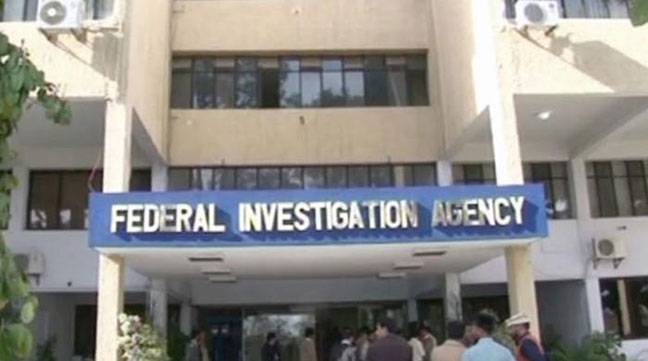LAHORE - There is a sharp rise in the cybercrimes in Pakistan and the agency tasked to fight this menace is finding it hard to curb it because of a number of reasons.
The foremost issue for the Federal Investigation Agency (FIA) is shortage of resources but another key problem is lack of cooperation from Facebook, the global social media giant which is also used by most of the Pakistani internet users.
FIA officials say that most of the complaints they receive are about sexual harassment. But the biggest challenge often comes from cases of blasphemy and propaganda – be it anti-state, anti-social, religious or political.
In such cases, they say, they find themselves sandwiched between the pressure from state authorities to act against the alleged criminals and Facebook authorities’ denial to share data on the excuse of freedom of expression.
The agency has therefore approached foreign ministry, through the interior ministry, to sign a Mutual Legal Assistance (MLA) agreement with US government to make it obligatory for Facebook to provide data of users involved in cybercrime in Pakistan.
“We are helpless and can’t take action against the accused involved in cybercrimes on Facebook due to cold shoulder of the administration of this US-based social media platform,” an FIA investigator said.
Though Facebook does have some criterion on provision of record to the governments around the world but they don’t reveal it, he said. So, their response to Pakistan’s requests for data sharing often appears to be whimsical, he added.
Even in cases of hate crime and sexual harassment if the accused happens to be a well-placed individual, socially or politically, Facebook would often refuse the request for data, the official said.
He cited the example of a collage professor, who was recently accused of harassment. The FIA couldn’t do anything about it as Facebook refused the request for data sharing on grounds of protecting freedom of expression.
“We have therefore written to foreign ministry, through interior ministry, to sign an agreement with American government to make Facebook bound to provide record of the accused to bring them to justice in Pakistan,” he said.
Resource shortage
FIA DG told an Islamabad court a few days ago that they were facing shortage of manpower to deal with the rising number of cybercrimes.
There are 15,000 complaints with FIA Islamabad regarding cybercrimes. However, the ratio of the complaints is relatively less in Khyber Pakhtunkhwa and Balochistan.
In Lahore office, there are only 21 officers to deal with cyber related complaints from 32 districts of Punjab province, where the incidence of cybercrime is highest. FIA Punjab received 3,889 complaints regarding Facebook misuse in 2017, which is almost double the number of complaints received in 2015.
Majority of the complaints were about sexual harassment, an FIA officer said. Out of these 677 inquiries were converted into cases while 2,715 were closed, transferred or merged. But 1,716 inquires were still pending with FIA Cyber Crime Circle, as on December 25, 2017.
Another problem facing the agency is that it has only two devices to retrieve data of the any accused. One of these devices was sent to Karachi, leaving FIA Punjab with just one such device.
Apart from this, one must have the licence to retrieve data of any individual from an electronic device, as only then it is admissible as evidence in the court.
FIA possesses only one licence despite the immense workload. Since there are many circles of the agency which work simultaneously on different cases, they all need licences to retrieve data from any individual’s mobile phone, laptop or other electronic device.
Backtracking
An investigator said that fear of stigmatization and many other social pressures make many complainants to withdraw cases in courts.
“Every now and then we receive complaints of blackmailing on Facebook and other social media networks. In most cases, when an accused is traced and produced in court, the family members of victims refuse to pursue the cases. They fear the case proceedings will bring a bad name to the family. This badly affects the conviction rate,” the officer said.






